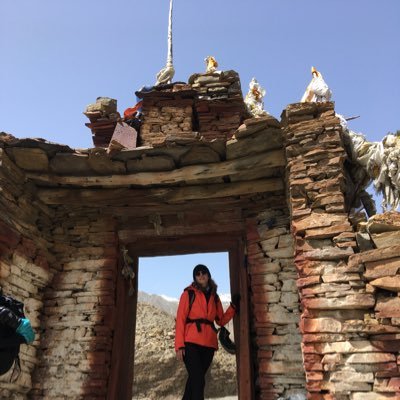As an archaeologist who works on climate, a question I often get is: “But why should we be worried about global warming, the earth has moved through hot and cold periods right?” Here’s why.
1.) We live in a fundamentally different world from that of how humans or rather hominids lived the last time we had similar concentrations of atmospheric CO2 to today (2 million years- 800,000 years) source :IPCC 2021.
2.) What was going on with humans between 2 million to 800,000 years ago. Well we were just getting started. Homo habilis and Homo erectus started making some of the first stone tools around this period of time, and had very low population densities, like 10,000 of them.

3.) Everything about life as we know it today, living in high population densities, in cities, growing our food and relying on domesticated crops and animals started roughly only about 10,000 years ago, but really more like 6000-4000 years ago in most places around the world
4.) It was during this period of time that all of the crops (and animals on which we rely today were domesticated). We haven’t, however, grown each of the crops we rely on everywhere and we cannot.
5.) Plants have very specific temperature and precipitation requirements and that’s why we have something called different plant biomes. We cant grow bananas in Greenland because its too cold, but likewise we cant grow apples trees in tropical forests.

6.) Temperature over the past 10,000 years has fluctuated, but nothing compared to what we are seeing with global warming. This graph shows temperature anomalies across the globe over past 10K, and then the red is the recent present.

7.) The recent IPCC report shows that we are also warmer than anything we’ve known in the past 2000 years.

8.) We should be very worried because our entire way of life, the economies on which we base our societies, the fact that we live in such high population densities is predicated on temperature conditions that we are propelling ourselves out of with our rising greenhouse gases.
9.) Did climate impact people in the past: it sure did. A cold event around 4200-3000 years ago for instance totally knocked some warmth loving crops called millet off places like the Tibetan plateau.

10.) But the temperatures we are experiencing and will continue to experience are far beyond this scope.
11.) The extreme weather events we have already begun to see are expected to increase in frequency with each degree of global warming, both for temperature (Source: IPCC 2021)

12.) But also for droughts/heavy rainfall flooding

13.) Just one three day event: the recent heat dome in the PNW caused massive impacts in several industries at the base of our economy A.) Fisheries, B.) Crops. Some blueberry harvest 100% damaged.
14.) See here:
https://csanr.wsu.edu/what-can-we-learn-from-the-pacific-northwest-heat-dome-of-2021/
15.) And then there is what happened to marine life and salmon.
https://www.livescience.com/heatwave-cooks-sealife-to-death.html
16.) The other key thing is that not everywhere on earth will be impacted equally. Some people ask me: “Cant we just all move to the poles where it will be cooler?” The answer is no: if we have 2C warming they might have up to 7C. Ecosystems there will be in complete collapse.

17.) And no, you cant just move to high altitude either. Higher altitude regions like the Tibetan plateau experience shifts in climate with higher amplitude than low altitude. See again here where the Tibetan plateau is warmer.

18.) and man, I’m just talking about temperature here. Predicted sea level rise is also going to knock large cities off the grid as well as fields. Did you know that roughly 6500 years ago, the whole coastal area between Shanghai and Shandong were underwater.
19.) Hundreds of million of people live there today and this could happen again in the very near future given IPCC predictions for sea level rise.
20.) But the real issue is: we can totally still do something about this. We can start gutting the fossil fuel industry now and transitioning towards cleaner power sources and towards a world where we all use less of the huge privilege (and emissions) we (and I mean USA) have had
21.) We can start by stopping them from EXPANDING. This is why the fight to #StopLine3 and the TransMountain pipeline is so, so critical l
22.) Individually, we can also make a difference. For instance, us academics can start by putting our money where our mouth is and stop flying to conferences and emitting tonnes of CO2 to give a 15 minute talk.
